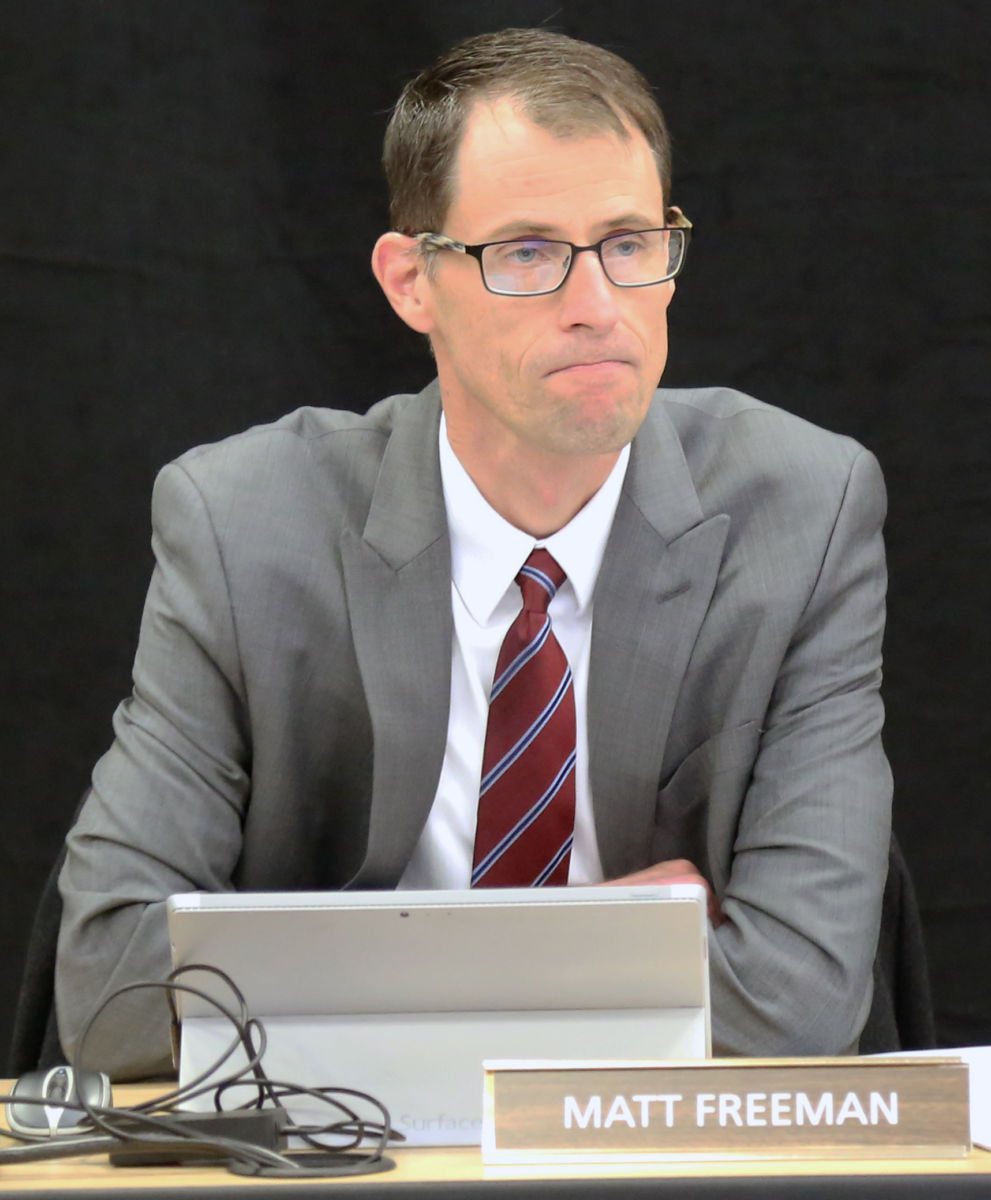Legislative budget-writers had a few pointed questions about the State Board of Education’s spending plan — including a $2.5 million training line item stemming from Idaho’s teacher evaluations controversy.

The $2.5 million would train school administrators in completing teacher evaluations. And that’s “critical” to the success of Idaho’s teacher salary career ladder, State Board Executive Director Matt Freeman told the Joint Finance-Appropriations Committee Tuesday morning.
JFAC is working its way through 2017-18 education budget requests all week. On Thursday, state superintendent Sherri Ybarra is scheduled to present her budget request. Ybarra and Gov. Butch Otter both want to fund the third year of the five-year career ladder, which would provide another $62 million for teacher pay raises.
However, Otter and some key legislators have tied the fate of career ladder funding to an improved evaluations process. Since June 2015, Idaho Education News has chronicled incomplete and inaccurate evaluations data reports compiled at Ybarra’s State Department of Education, and key lawmakers have criticized Ybarra for sitting on an unfavorable outside review of 2014-15 evaluations.
Ultimately, raises under the career ladder are tied in part to evaluations.
Budget-writers had questions about the mechanics of the training plan — and the cost.
Sandpoint Republican Shawn Keough, JFAC’s Senate co-chair, questioned why Otter wanted to put training programs under the State Board’s purview, instead of the SDE. Rep. Neil Anderson, R-Blackfoot, questioned whether $2.5 million would be adequate to do the job. And Rep. Steve Miller, R-Fairfield, questioned whether the training plan would provide the state with a workable evaluations system.
Otter’s budget-writers decided that the training fit within the State Board’s mission, and decided on $2.5 million after looking at similar efforts in other states, said David Hahn, an analyst in the governor’s Division of Financial Management.
The State Board budget contains two training line items. A second request, also at $2.5 million, would launch the “Principals Pursuing Excellence” program. This voluntary training would be available to administrators at low-performing schools.
College scholarships
Also Tuesday, the State Board made a pitch for continued and increased funding for college scholarships.
A new $3 million “adult completer” scholarship program could help Idahoans who have earned some college credits, but dropped out before receiving a degree. If passed, the program would provide scholarships of up to $3,000 per year. The House Education Committee introduced the adult completer scholarship bill Monday morning; it’s likely to receive a hearing in committee in the near future.
“We believe that this is a critical scholarship,” Freeman told JFAC.
A $5 million boost in Idaho’s needs-based Opportunity Scholarship is starting to make a difference, Freeman said. The 2016 Legislature doubled Opportunity Scholarship funding from $5 million to $10 million, and the State Board is again seeking $10 million for 2017-18 scholarships.
But in response to a question from Rep. Phylis King, D-Boise, Freeman said the $10 million still leaves some students on the outside looking in.
The state has received 3,763 eligible applications this year, he said. The state has approved 2,492 applications so far, and about 140 applications are outstanding.
Eligible students can receive an Opportunity Scholarship of up to $3,000 a year.
Bullying rule
The Senate Education Committee approved a rule requiring school districts and charter schools to report bullying and harassment incidents.
The reporting requirements aren’t new. After the 2015 Legislature passed an anti-bullying law, the state put temporary reporting requirements in place. Each year, a district or charter is required to report the number of bullying incidents, with breakdowns by grade level, gender and repeat offenders.
However, the data-gathering process has been a scramble, Matt McCarter of the SDE told senators. The state is still trying to compile bullying statistics from 2015-16, he said, and the state hopes to compile 2016-17 numbers at the end of the current school year.
Senate Education approved the rule unanimously. It will now go to the House Education Committee for review.
